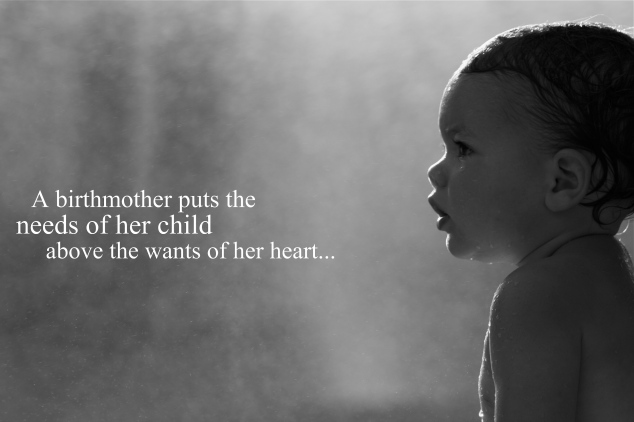Words convey facts and evoke feelings. The way we talk—and the specifically the words we choose—say a lot about what we think and value. When we use positive adoption language, we are supporting that adoption is a wonderful way to build a family – just as birth is. Both ways are important, unique and special. One is not more important than the other.
By using emotionally sensitive language, we educate others about adoption and the fact that it isn’t a “second best” route to becoming a parent. We speak and write this way in the hope of influencing others so that this language will someday become the norm. It is important to talk with your family and friends about why certain verbiage has a negative impact – and relate it to your preferences. Your coaching can also be contagious to those around you, correcting adoption misconceptions in a powerful way.
When considering your adoption language, it is important to think of the child’s perspective. For an adopted child, the difference in the words they hear about adoption can change the way they view themselves. It’s also the tone and intent of the user that puts the communicative concept in a positive or negative light.
In adoption, children will always have two absolutely “real” families: one by birth and one by adoption. By sweetening the language, we sometimes remove the truth though. A fact remains that can’t be changed with emotionally sensitive words… that every adoption really begins with a catastrophe.
Sometimes we may actually have to choose between politically correct terms and those a child chooses to use – based on their age level and cognitive understanding. For example, in a foster child’s eyes, they were “taken away” from their parent by police and CPS workers. So, they won’t easily apply the preferred term: “court termination” to that scenario. They were there for the “taking away” part and if it’s historically accurate, any correction might cause unnecessary confusion.
If you have reached this article because you are unsure of what phrases to use, we believe it’s perfectly acceptable to ask the biological parents or adoptive family what they prefer. By being overt, you can avoid phrases that may be confusing to a child and/or hurtful to both the birth family and adopting family. Quite frankly, they may not even entirely support this agency’s chosen terms – and that’s just fine. We should all aim to create comfort with our words. Use the terms that they support and find the most value in, given their unique relationships and situation.
Adoption has significant impact on the lives of those it touches, but it is not a “condition.” It should never become a label. Choose which words you use carefully and thoughtfully. After all — Words Can Hurt.
Below are vocabulary terms about adoption which have been chosen carefully to reflect maximum respect, responsibility and objectivity about the decisions occurring in family planning decisions, children who have been adopted and families who have been impacted by adoption.
More Sensitive: Less Sensitive:
Say: Birthparent Don’t say: Real Parent
Say: Biological parent Don’t say: Natural parent
Say: Birth Child Don’t say: My own child, real child, natural child
Say: My child Don’t say: My adopted child, My own child
Say: Person Don’t say: Adoptee
Say: Born to unmarried parents Don’t say: Illegitimate
Say: Make an adoption plan Don’t say: Give away, adopt out
Say: Chose adoption Don’t say: Put up or give up for adoption
Say: To parent the baby Don’t say: To keep the baby
Say: Child in need of a family Don’t say: Adoptable child/unwanted child
Say: I’m a Parent Don’t clarify: I’m an Adoptive parent
Say: Child who has special needs Don’t say: Handicapped child, Hard to place child
Say: He/She WAS adopted Don’t say: He/She IS adopted
Say: Choosing adoption plan Don’t say: giving away the child
Say: Search Don’t say: Track down parents
Say: Unintended pregnancy Don’t say: Unwanted pregnancy
Say: Court termination Don’t say: Child taken away
Say: Intercountry Adoption Don’t say: Foreign adoption
Say: Making Contact With Don’t say: Reunion
Say: Biological or birth father Don’t say: Real Father
Say: Biological or birth mother Don’t say: Real Mother
Say: Finding a family to parent a child Don’t say: Putting a child up for adoption


Most of these are good. Sometimes people make me cringe with the stuff they say. But I don’t agree that we should never use words like adoptee. In writing for our blog, we would be hardpressed (or incredibly verbose) to describe certain things in a post or in a tweet without being able to use that word. Sometimes language designed to be more sensitive can lead us down the path of being ridiculous. However, the word “real” has NO place at all in any discussion of families and family members.
LikeLike
Thanks for illustrating a great point. At times, there are exceptions! I’d love to do a post about comments said/experienced in real life, with suggestions for how they might be responded to.
LikeLike
I think suggestions for how to handle them would be a great idea!
LikeLike